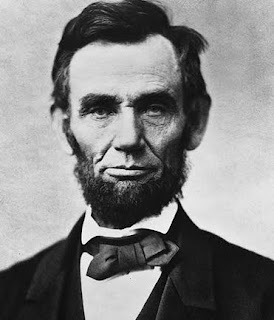
Abraham Lincoln served as the 16th President of the United States from March 1861 until his murder in April 1865. He successfully led his country through its most internal crisis, the American Civil War, preserving the Union and ending slavery. Before his election in 1860 as the first Republican president, Lincoln had been a country lawyer, an Illinois state legislator, a member of the United States House of Representatives, and twice an unsuccessful applicant for election to the U.S. Senate.
As an outspoken opponent of the growth of slavery in the United States, Lincoln won the Republican Party nomination in 1860 and was elected president later that year. His tenure in office was engaged primarily with the defeat of the secessionist Confederate States of America in the American Civil War. He introduced measures that resulted in the removal of slavery, issuing his Emancipation Proclamation in 1863 and promoting the passage of the Thirteenth Amendment to the Constitution.
Six days after the large-scale surrender of partner forces under General Robert E. Lee, Lincoln became the first American president to be assassinated. Lincoln had closely supervised the winning war effort, especially the selection of top generals, including Ulysses S. Grant. Historians have concluded that he handled the factions of the Republican Party well, bringing leaders of each faction into his cabinet and forcing them to assist.
As an outspoken opponent of the growth of slavery in the United States, Lincoln won the Republican Party nomination in 1860 and was elected president later that year. His tenure in office was engaged primarily with the defeat of the secessionist Confederate States of America in the American Civil War. He introduced measures that resulted in the removal of slavery, issuing his Emancipation Proclamation in 1863 and promoting the passage of the Thirteenth Amendment to the Constitution.
Six days after the large-scale surrender of partner forces under General Robert E. Lee, Lincoln became the first American president to be assassinated. Lincoln had closely supervised the winning war effort, especially the selection of top generals, including Ulysses S. Grant. Historians have concluded that he handled the factions of the Republican Party well, bringing leaders of each faction into his cabinet and forcing them to assist.
view this site :Fashion News, Chicago Movers
No comments:
Post a Comment